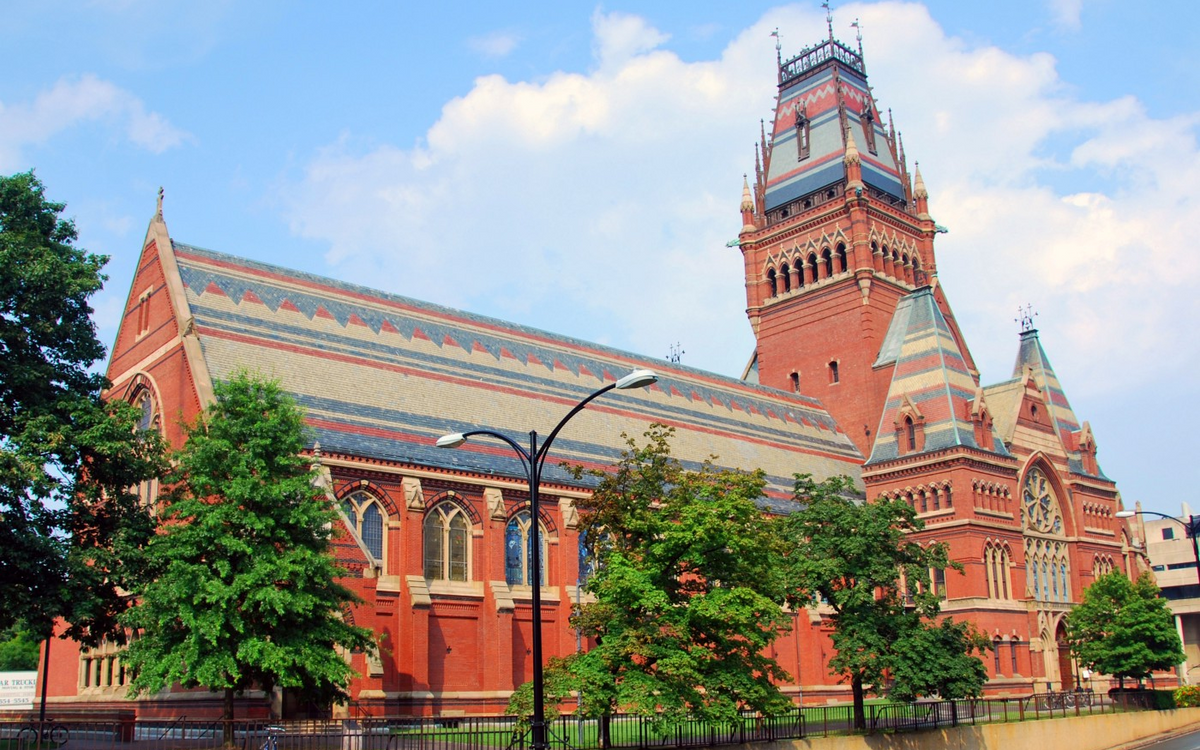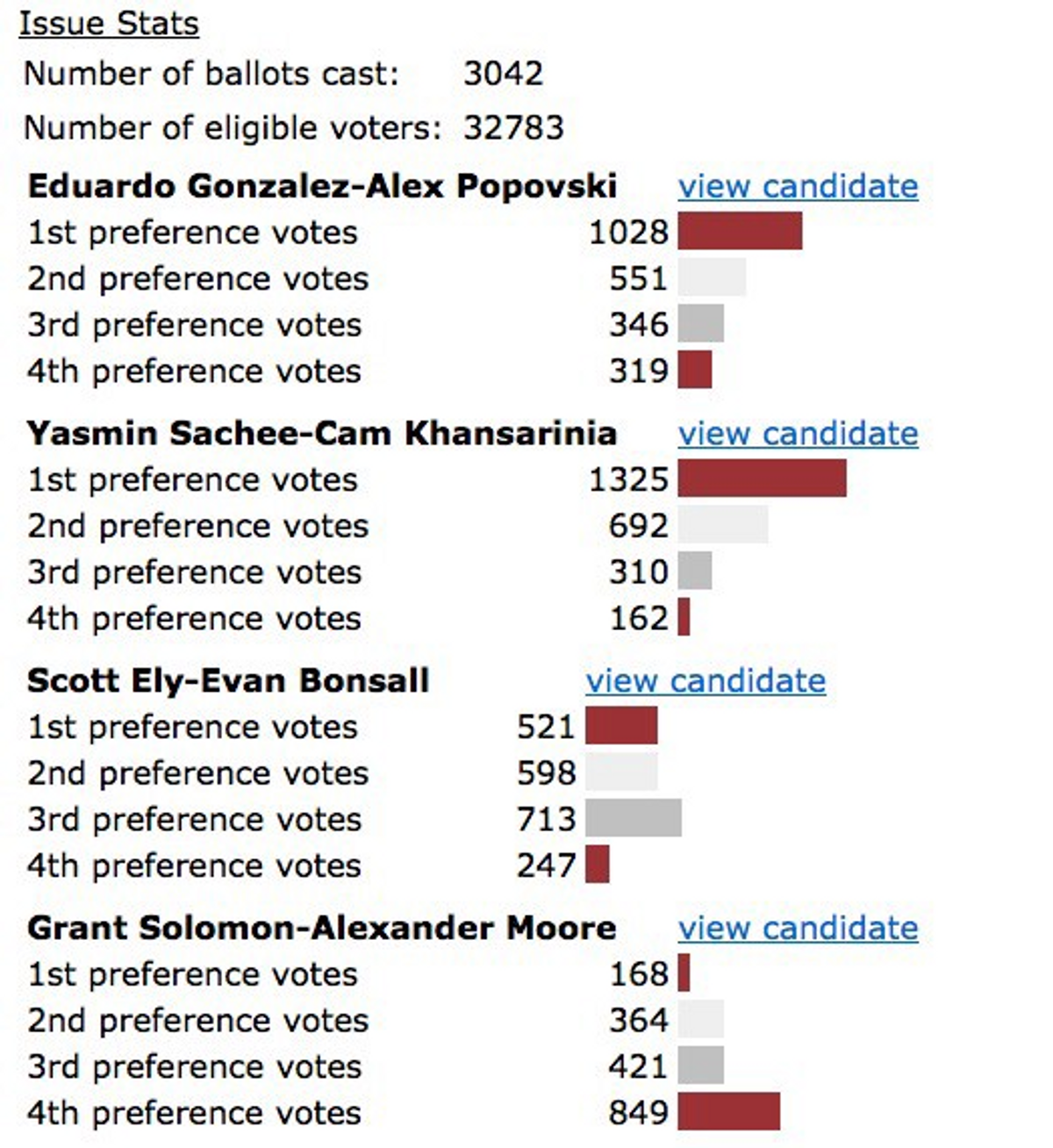
Background
Well, the dust has settled. After the widely-criticized failure of pundits and pollsters in the immediate aftermath of the 2016 American election, the Harvard Open Data Project launched SixteenThirtySix, the first-ever polling and prediction project undertaken at Harvard College for a student government election. Read our previous posts here.
(SixteenThirtySix: Making Our Prediction- Nov 17, 2016)
The Results
Quoted above is the prediction we published as polls closed after a three-day voting period. Not without a hint of controversy later that night, the election results were certified and released the next day by the UC Election Commission (below).
 2016 Undergraduate Council Election Results
2016 Undergraduate Council Election ResultsQuick Takes and Analysis
- Despite the intricacies of the ranked-choice voting system that are visualized above, Yaz and Cam won a plurality of “1st preference votes” and the UC Presidency and Vice-Presidency, followed by Eduardo and Alex, Scott and Evan, and Grant and Alexander. So in other words, our prediction correctly forecasted not just the winner, but the order in which the other tickets placed as well.
- 3042 ballots were cast out of Harvard College’s undergraduate population of approximately 6700 — a voter turnout rate of 45%.
- Since more students failed to vote than actually voted, we still view social media to be the most effective campaign tool in UC elections. Yaz and Cam’s superior presence on platforms such as Facebook enabled them to reach a large subset of the student body, which eventually converted into more votes.
- Looking back at all the metrics that we analyzed before making our prediction, Facebook presence (both by campaigns and individuals) correlates most strongly with the results, while notably endorsements by UC representatives and student organizations do not.
- Gimmicks work. Apart from their social media presence, Yaz and Cam’s campaign coordinated door drops of puzzle pieces in upperclassmen Houses and freshman Yard dorms, a clever play on their campaign slogan of “piecing it all together.” In an election with turnout under 50% and abstract stakes in the minds of many eligible voters, this gimmick successfully created buzz and started conversations.
What does this mean for the future?
- Since UC Presidential tickets are regulated by the Election Commission to spend no more than a certain dollar amount on campaign-related activities, this election has shown that the most efficient avenue for campaign dollars is promoting social media posts, a tactic harnessed successfully by Yaz and Cam. One of their competitors, Scott and Evan, invested instead primarily on physical advertisements, including flyers and posters tacked and taped to bulletin boards and dorm-room doors across campus. This more traditional tactic does not appear to have brought Scott and Evan much success, as they finished in third place.
- Our poll, despite its statistical flaws, had a fairly accurate representation of the final results. The relatively small nature of Harvard’s undergraduate community, especially compared to the entirely of the United States, helps to minimize the number of flaws in our Google Form survey (imagine Presidential campaign polls being conducted with Google Forms…)
Until Next Time
Until the time comes for SixteenThirtySix to predict another election at Harvard (we unfortunately missed the train on the graduate student unionization election), the Harvard Open Data Project will continue on working on other pressing projects, such as the development of a more accessible HUPD police log that will visualize locations of crimes on a map of Harvard’s campus, or analysis of HUDS data to minimize food waste in dining halls.
If you are at all interested in joining HODP or have a suggestion of a data-driven project we should pursue, reach out to me at ckuang@college.harvard.edu and let’s chat!
